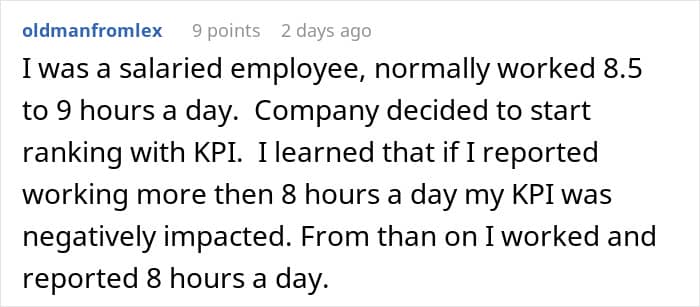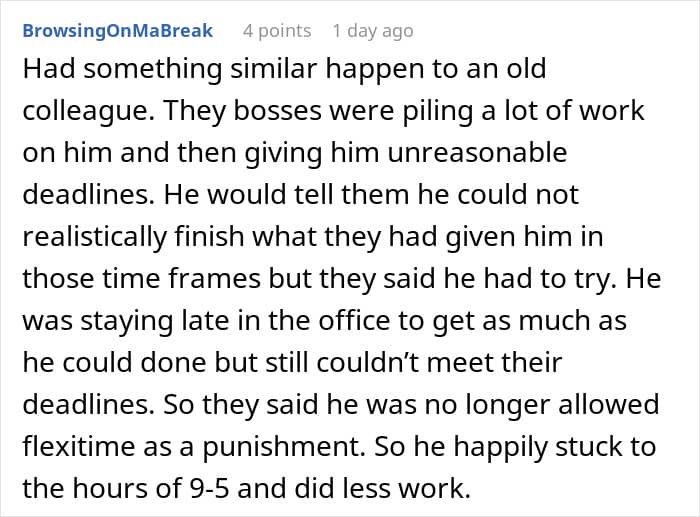Two of the hallmarks of truly great managers are that they’re able to admit when they’re wrong and they genuinely learn from their mistakes. This is exceedingly rare! Bad workplace leaders, on the other hand, tend to blame others. And they’ll dodge taking responsibility for their poor decisions like Neo fighting Agents in The Matrix.
Internet user u/my-reddit-saga went viral on the ‘Malicious Compliance’ online group after sharing an old story about their former boss. According to the author, their superior suddenly had an issue with their flexible hours, demanding that they end work at precisely 4 PM. However, this had a lot of unintended consequences.
Keep scrolling to read the full story, including a surprisingly wholesome twist! We got in touch with the author of the post, u/my-reddit-saga, and they were kind enough to answer our questions.
RELATED:One huge difference between good and bad bosses is that the former manage to set their egos aside and admit when they’re wrong

Image credits: Samuel Raita / unsplash (not the actual photo)
An employee shared how their old boss decided to take a firm stance on flexible work hours. However, he quickly realized he had made a mistake
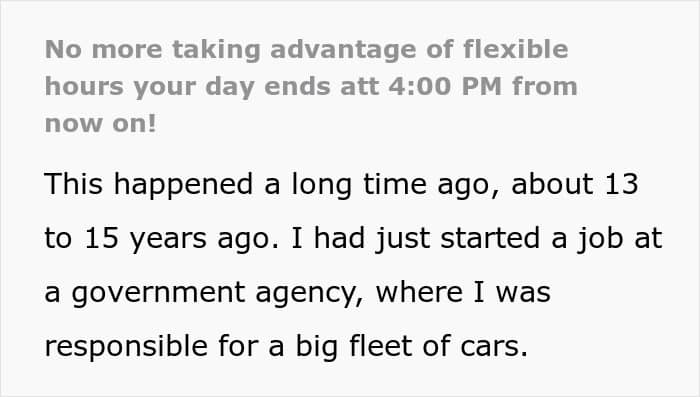
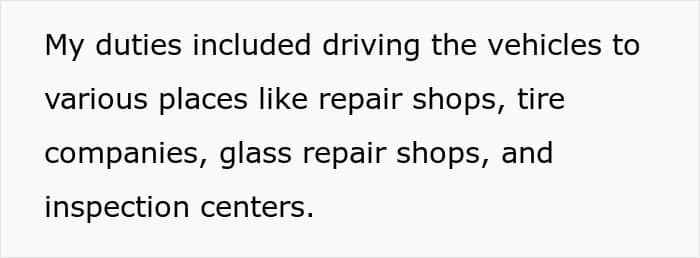
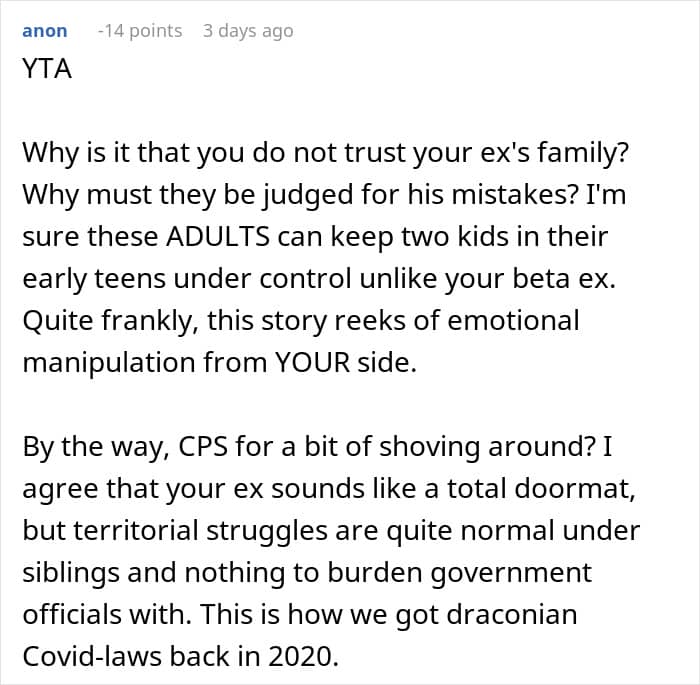
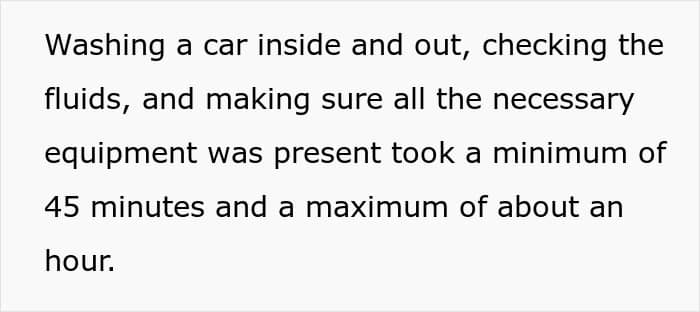

Image credits: Getty Images / unsplash (not the actual photo)
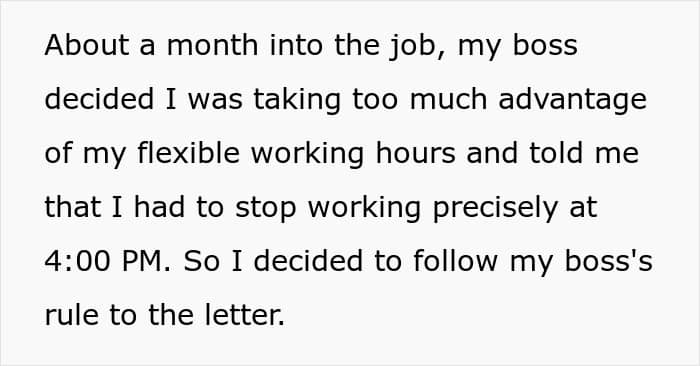
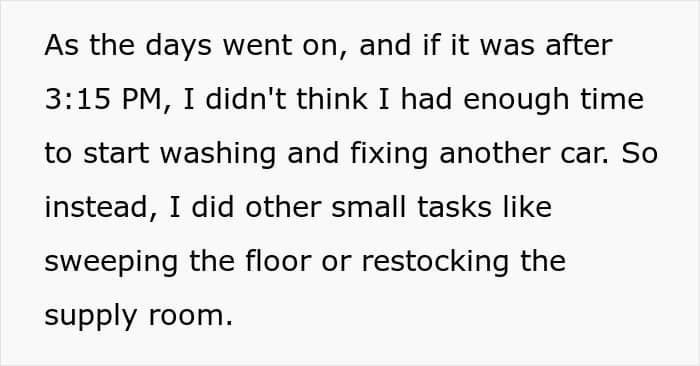
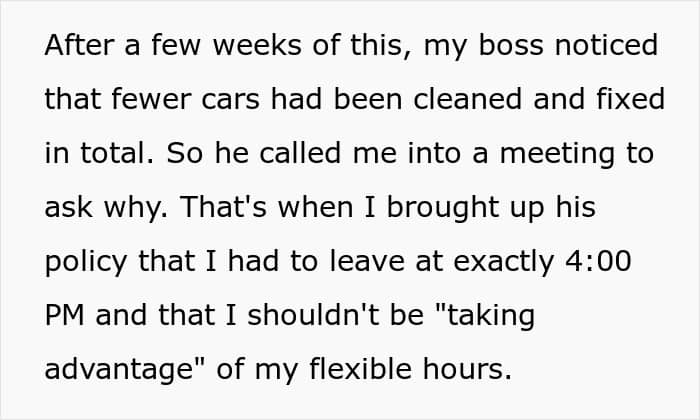
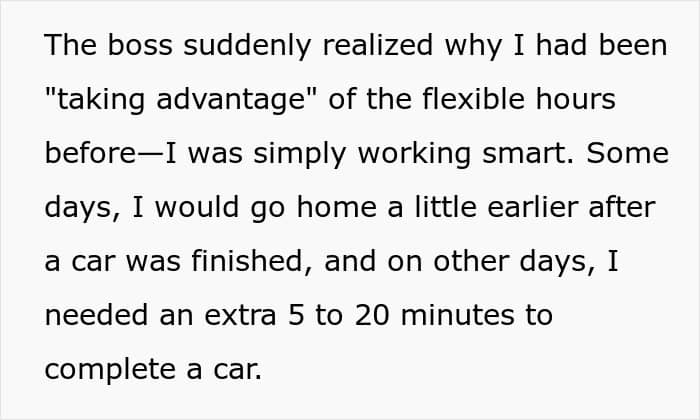

Image credits: Rodrigo Rodrigues / unsplash (not the actual photo)

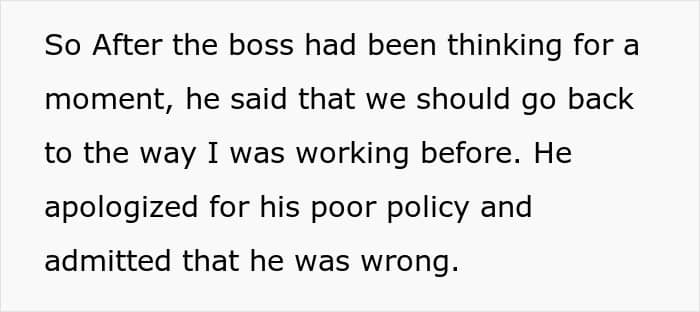

Image credits: my-reddit-saga
There’s nothing wrong with giving your employees freedom, so long as they take their responsibilities seriously

We asked the author of the story how they initially reacted when their boss recognized his mistake and apologized for it.
“Since we had a good relationship with each other, I didn’t think much of it,” redditor u/my-reddit-saga opened up to We.
“In the end, he [the boss] just wanted everything to go smoothly.”
According to the author, his former boss was an older man at the time. He “retired not long after I left,” u/my-reddit-saga said, adding that their superior was “kind of a workaholic.”
We also wanted to get u/my-reddit-saga’s thoughts on the best qualities of a truly great boss. From their perspective, a good trait for a boss to have is offering “freedom under responsibility”… “as long as the job gets done,” of course.
Flexible schedules offer lots of benefits. Not just for employees, but for managers, too

There are lots of different ways that you can structure flexible work schedules. It’s quite likely that you have a flexible schedule, even though it doesn’t quite feel like you do. Indeed explains that the most common types are:
Flex-time, where employees work outside traditional business hours, starting earlier or laterCompressed, where your employees work longer hours each shift, so they get more time off laterRemote, where you work from somewhere other than a designated work locationPart-time, where employees work less than 40 hours a weekHybrid, where you work part of the week remotely, and part of the time at the office
There are tons of upsides to flexible schedules for both the workers and their managers. For instance, employees get access to better work-life balance, have more flexibility when it comes to professional development and education, feel valued by their companies, have better health, and are more satisfied with their jobs.
Meanwhile, managers get lots of benefits, too. Such as more engaged employees who perform better and are more creative at problem-solving. On top of that, flexible schedules help with productivity, worker retention rates, attendance, as well as overhead expenses.
What’s more, offering flexible schedules is potentially good for recruitment too, allowing you to draw in more talented candidates who want these perks.
Truly good workplace leaders are rare. Bad ones, however, are fairly common. There are lots of red flags to help you recognize them

The situation that the author of the post described on the ‘Malicious Compliance’ subreddit is fairly rare. A boss who is humble and empathetic enough to recognize their mistake and apologize is practically a unicorn. This suggests that the workplace leader is serious about supporting their staff, instead of focusing on protecting their own ego.
According to Forbes, some of the biggest red flags that you’re dealing with a toxic boss include the fact that they:
Consistently overwork you and don’t care about your well-beingCan’t control their emotions and constantly lose controlTake credit for the work that you doDon’t trust you and refuse to empower youDon’t advocate for you, and promise salary increases and promotions that don’t ever happenMicromanage you, which demoralizes you and makes you less engaged in your workDon’t set clear expectations, leading to dissatisfaction and a high employee turnover rateHave favorites at work, giving them preferential treatmentRefuse to provide constructive feedback, meaning you can’t improveAren’t open to new ideas or feedback
What’s your take, dear Pandas? Has someone in management tried to micromanage your work hours a bit too much? Do you currently have a flexible schedule at work? What, for you personally, are the hallmarks of a truly great boss? On the flip side, what are the biggest toxic boss red flags to be aware of? You can tell us what you think in the comments!
Later, the author shared a few more details about the situation
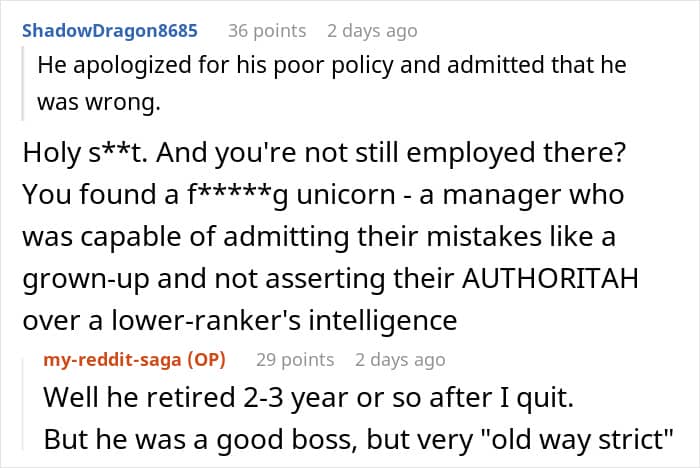
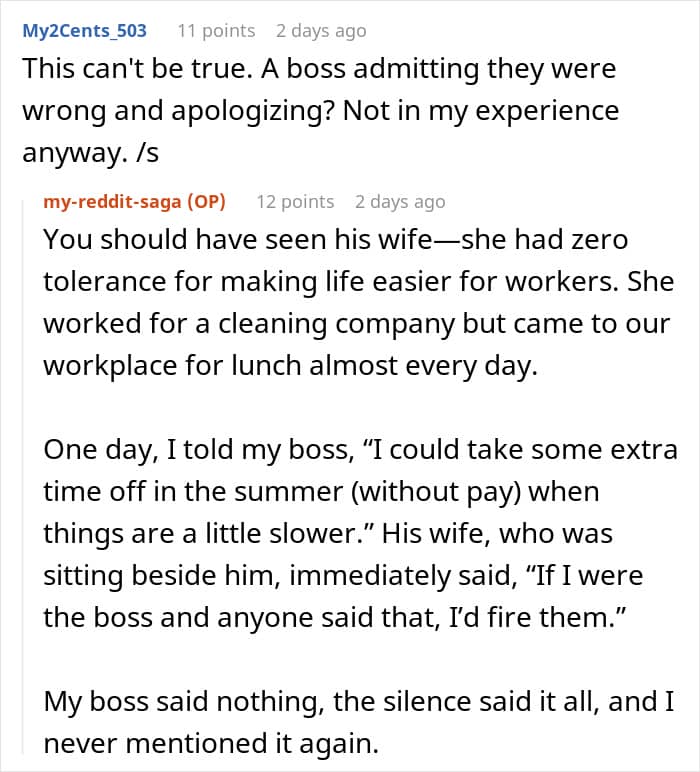
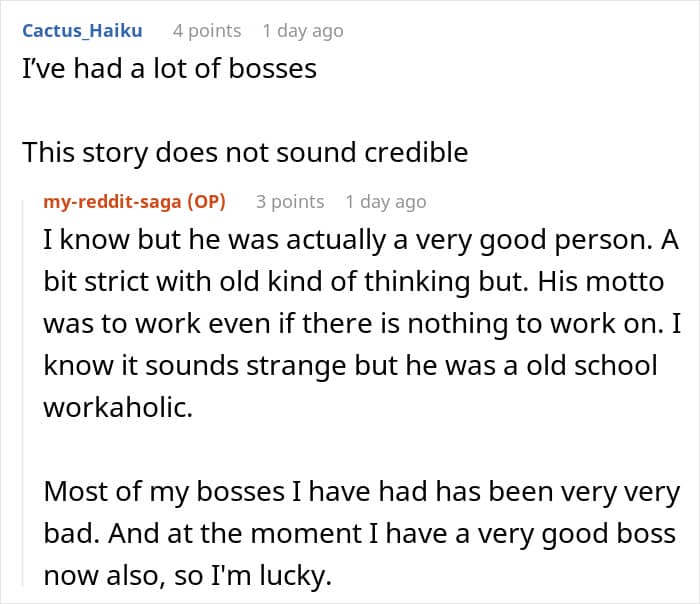
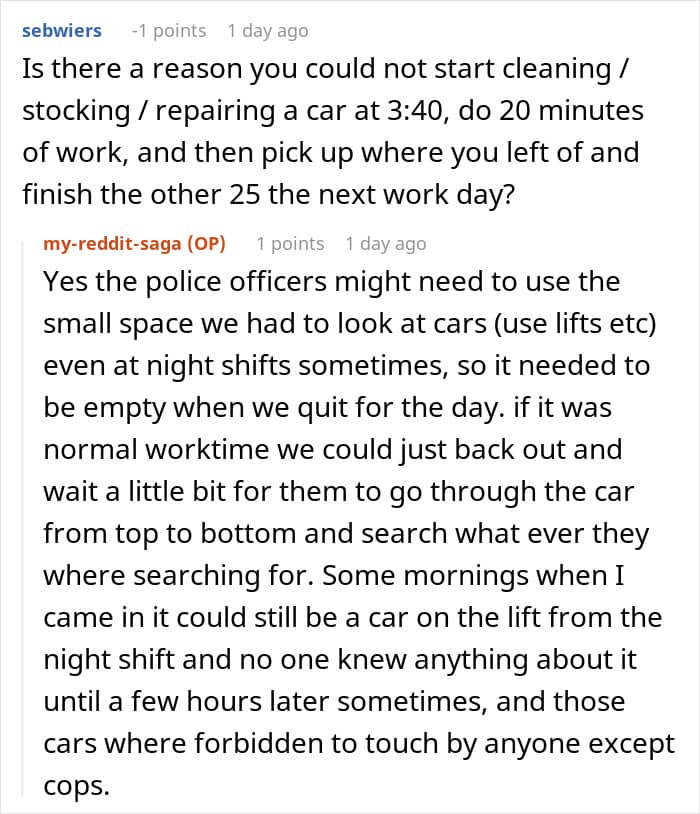
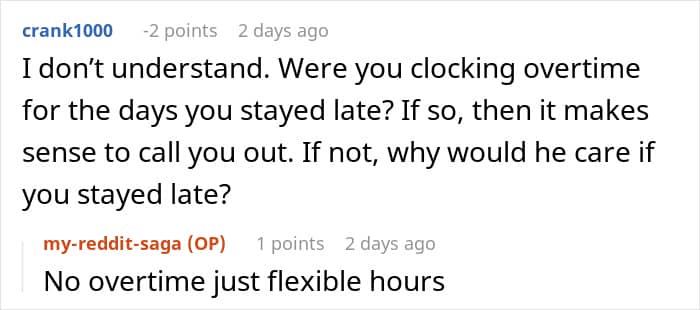
People were ecstatic to learn how things turned out
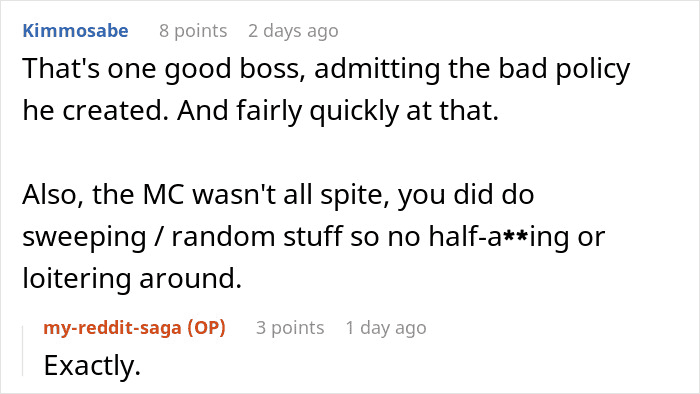




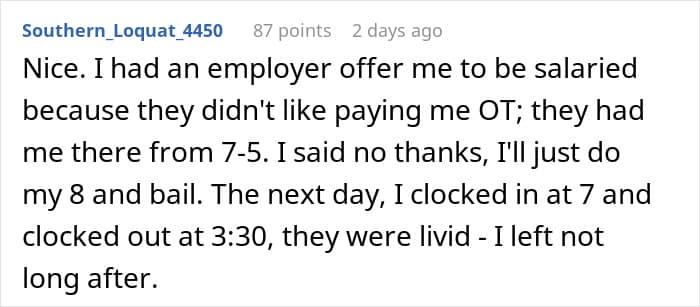
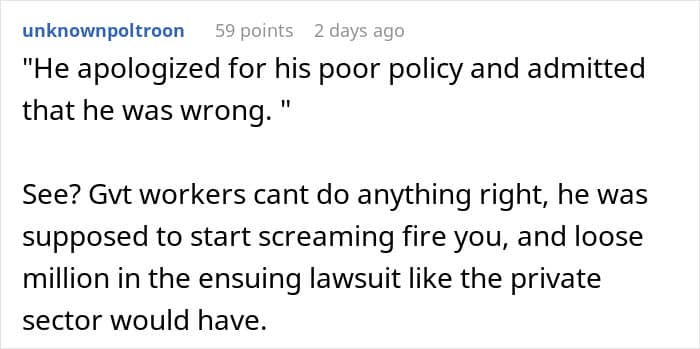
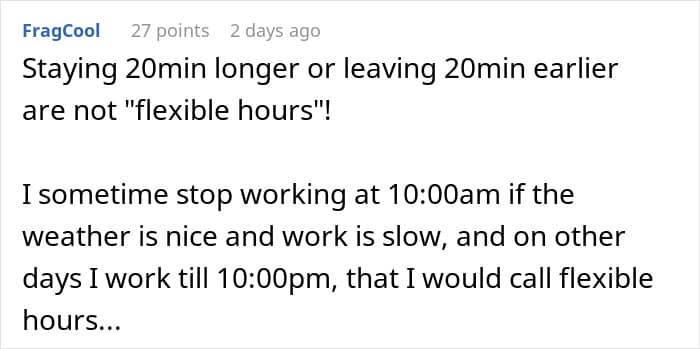



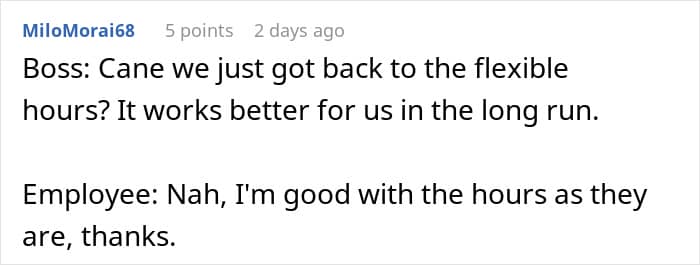


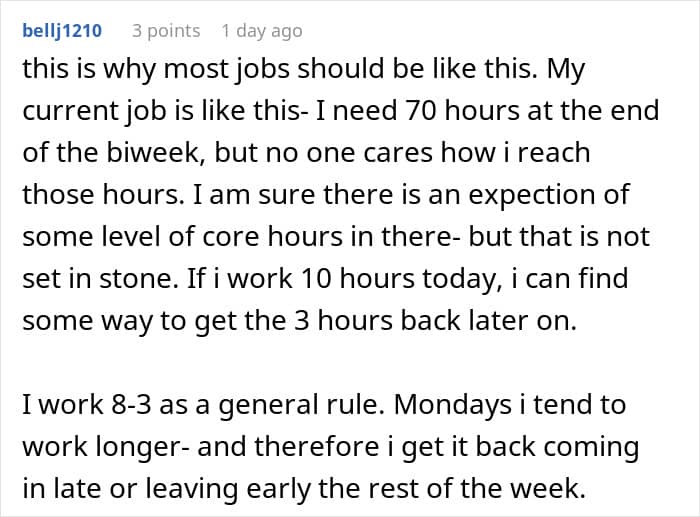
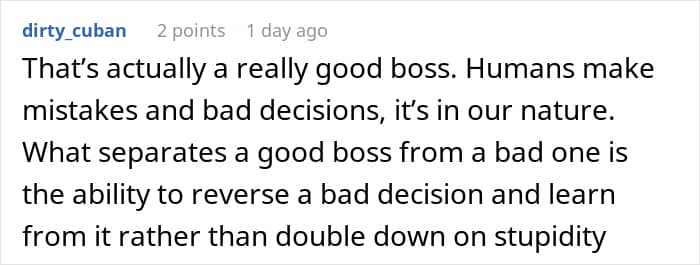

Some folks shared similar work stories of their own
